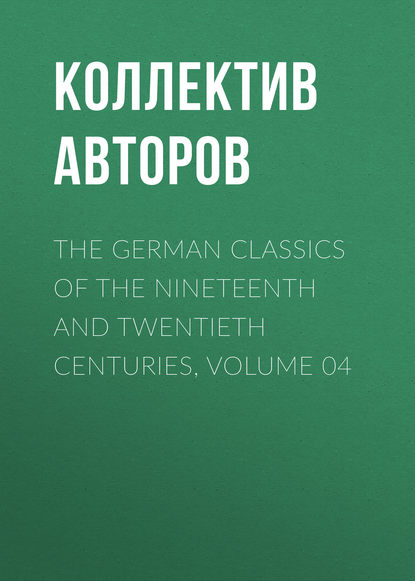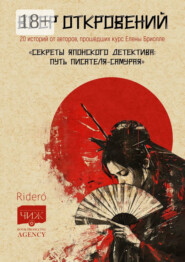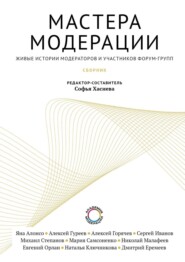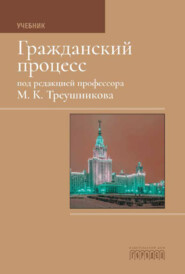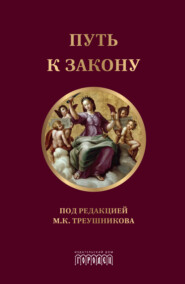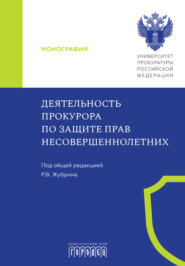По всем вопросам обращайтесь на: info@litportal.ru
(©) 2003-2024.
✖
The German Classics of the Nineteenth and Twentieth Centuries, Volume 04
Настройки чтения
Размер шрифта
Высота строк
Поля
To assign to poetry, among human endeavors, the lofty and serious place of which I have spoken above, to defend it from the petty point of view of those who, mistaking its dignity, and the pedantic attitude of those who, mistaking its peculiar character, regard it only as a trifling adornment and embellishment of life or else ask an immediate moral effect and teaching from it—this, as one cannot repeat too often, is deeply rooted in the German habit of thought and feeling. Schiller in his poetry gave utterance—in his own individual manner, however—to whatever his German nature had implanted in him, to the harmony which rang out to him from the depths of the language, the mysterious effect of which he so cleverly perceived and knew how to use so masterfully. * * *
The deeper and truer trend of the German resides in his highly developed sensibility which keeps him closer to the truths of nature, in his inclination to live in the world of ideas and of emotions dependent upon them, and, in fact, in everything which is connected therewith. * * *
A favorite idea which often engaged Schiller's attention was the need of educating the crude natural man—as he understood him—through art, before he could be left to attain culture through reason. Schiller has enlarged upon this theme on many occasions, both in prose and verse. His imagination dwelt by preference upon the beginnings of civilization in general, upon the transition from the nomadic life to the agricultural, upon the covenant established in naïve faith with pious Mother Earth, as he so beautifully expresses it.
Whatever mythology offered here as kindred material, he grasped with eagerness and firmness. Faithfully following the traces of fable, he made of Demeter, the chief personage in the group of agricultural deities, a figure as wonderful as it was appealing, by uniting in her breast human feelings with divine. It was long a cherished plan with Schiller to treat in epic form the earliest Attic civilization resulting from foreign immigration. The Eleusinian Festival, however, replaced this plan, which was never executed. * * *
The merely emotional, the fervid, the simply descriptive, in fact every variety of poetry derived directly from contemplation and feeling, are found in Schiller in countless single passages and in whole poems. * * * But the most remarkable evidence of the consummate genius of the poet is seen in The Song of the Bell, which, in changing metre, in descriptions full of vivacity where a few touches represent a whole picture, runs through the varied experiences in the life of man and of society; for it expresses the feelings which arise in each of them, and ever adapts the whole, symbolically, to the tones of the bell, the casting and completing of which the poem accompanies throughout in all its various stages. I know of no poem, in any language, which shows so wide a poetic world in so small a compass, that so runs through the scale of all that is deepest in human feelings, and, in the guise of a lyric, depicts life in its important events and epochs as if in an epic poem confined within natural limits. But the poetic clearness is enhanced by the fact that a subject which is portrayed as actually existing, corresponds with the shadowy visions of the imagination; and the two series thus formed run parallel with each other to the same end. * * *
Schiller was snatched from the world in the full maturity of his intellectual power, though he would undoubtedly have been able to perform an endless amount of additional work. His scope was so unlimited that he would never have been able to find a goal, and the constantly increasing activity of his mind would never have allowed him time for stopping. For long years ahead he would have been able to enjoy the happiness, the rapture, yes, the bliss of his occupation as a poet, as he so inimitably describes it in one of the letters in this collection, written about a plan for an idyl. His life ended indeed before the customary limit had been reached, yet, while it lasted, he worked exclusively and uninterruptedly in the realm of ideas and fancy.
Of no one else, perhaps, can it be said so truthfully that "he had thrown away the fear of that which was earthly and had escaped out of the narrow gloomy life into the realm of the ideal." And it may be observed, in closing, that he had lived surrounded only by the most exalted ideas and the most brilliant visions which it is possible for a mortal to appropriate and to create. One who thus departs from earth cannot be regarded as otherwise than happy.
THE EARLY ROMANTIC SCHOOL
By JAMES TAFT HATFIELD, PH.D.
Professor of the German Language and Literature, Northwestern University.
The latter half of the eighteenth century has been styled the Age of Enlightenment, a convenient name for a period in which there was a noticeable attempt to face the obvious, external facts of life in a clear-eyed and courageous way. The centralizing of political power in the hands of Louis XIV. of France and his successors had been accompanied by a "standardizing" of human affairs which favored practical efficiency and the easier running of the social machine, but which was far from helpful to the self-expression of distinctly-marked individuals.
The French became sovereign arbiters of taste and form, but their canons of art were far from nature and the free impulses of mankind. The particular development of this spirit of clarity in Berlin, the centre of German influence, lay in the tendency to challenge all historic continuity, and to seek uniformity based upon practical needs.
Rousseau's revolutionary protests against inequality and artificiality—particularly his startling treatise On the Origin and Foundations of Inequality among Men (1754)—and his fervent preaching of the everlasting superiority of the heart to the head, constitute the most important factor in a great revolt against regulated social institutions, which led, at length, to the "Storm and Stress" movement in Germany, that boisterous forerunner of Romanticism, yet so unlike it that even Schlegel compared its most typical representatives to the biblical herd of swine which stampeded—into oblivion. Herder, proclaiming the vital connection between the soul of a whole nation and its literature, and preaching a religion of the feelings rather than a gospel of "enlightenment;" young Goethe, by his daring and untrammeled Shakespearian play, Goetz von Berlichingen, and by his open defiance, announced in Werther, of the authority of all artistic rules and standards; and Bürger, asserting the right of the common man to be the only arbiter of literary values, were, each in his own way, upsetting the control of an artificial "classicism." Immanuel Kant, whose deep and dynamic thinking led to a revolution comparable to a cosmic upheaval in the geological world, compelled his generation to discover a vast new moral system utterly disconcerting to the shallow complacency of those who had no sense of higher values than "practical efficiency."
When, in 1794, Goethe and Schiller, now matured and fully seasoned by a deep-going classical and philosophical discipline, joined their splendid forces and devoted their highest powers to the building up of a comprehensive esthetic philosophy, the era was fully come for new constructive efforts on German soil. Incalculably potent was the ferment liberated by Goethe's Wilhelm Meister (1795-1796)—its attacking the problem of life from the emotional and esthetic side; its defense of the "call" of the individual as outweighing the whole social code; its assertion that genius outranks general laws, and imagination every-day rules; its abundance of "poetic" figures taking their part in the romance.
The birth of the Romantic School can be pretty definitely set at about 1796; its cradle was in the quaint university town of Jena, at that time the home of Schiller and his literary-esthetic enterprises, and only a few miles away from Goethe in Weimar. Five names embody about all that was most significant in the earlier movement: Fichte, the brothers Friedrich and Wilhelm Schlegel, Tieck, and Novalis.
The discussion of Fichte belonging to another division of this work, it is enough to recall here that he was already professor of philosophy at Jena when the Schlegel brothers made their home there in 1796, and that it was while there that he published his Doctrine of Science, the charter of independence of the Romantic School, announcing the annihilation of physical values, proclaiming the soul as above things perceived, the inner spirit as that alembic in which all objects are produced. With almost insolent freshness Fichte asserted a re-valuation of all values: what had been "enlightenment" was now to be called shallowness; "ancient crudities" were to be reverenced as deeper perceptions of truth; "fine literature" was to be accounted a frivolous thing. Fichte made a stirring appeal to young men, especially, as being alone able to perceive the meaning of science and poetry.
To take part in the contagion of these ideas, there settled in Jena in 1796 the two phenomenal Schlegel brothers. It is not easy or necessary to separate, at this period, the activities of their agile minds. From their early days, as sons in a most respectable Lutheran parsonage in North Germany, both had shown enormous hunger for cultural information, both had been voracious in exploiting the great libraries within their reach. It is generally asserted that they were lacking in essential virility and stamina; as to the brilliancy of their acquisitions, their fineness of appreciation, and their wit, there can be no question whatever. Madame de Staël called them "the fathers of modern criticism," a title which has not been challenged by the best authorities of our time.
Friedrich von Schlegel (1772-1829), the younger of the two, is counted to be the keener and more original mind. He had a restless and unsettled youth, mostly spent in studies; after various disappointments, he determined to make classical antiquity his life-work; while mastering the body of ancient literature, he was assimilating, with much the same sort of eagerness, the philosophical systems of Kant and Fichte. His first notable publication was an esthetic-philosophic essay, in the ample style of Schiller's later discourses, Concerning the Study of Greek Poetry. He found in the Greeks of the age of Sophocles the ideal of a fully developed humanity, and exhibited throughout the discussion a remarkable mastery of the whole field of classical literature. Just at this time he removed to Jena to join his older brother, Wilhelm, who was connected with Schiller's monthly The Hours and his annual Almanac of the Muses. By a strange condition of things Friedrich was actively engaged at the moment in writing polemic reviews for the organs of Reichardt, one of Schiller's most annoying rivals in literary journalism; these reviews became at once noticeable for their depth and vigorous originality, particularly that one which gave a new and vital characterization of Lessing. In 1797 he moved to Berlin, where he gathered a group about him, including Tieck, and in this way established the external and visible body of the Romantic School, which the brilliant intellectual atmosphere of the Berlin salons, with their wealth of gifted and cultured women, did much to promote. In 1799 both he and Tieck joined the Romantic circle at Jena.
In Berlin he published in 1798 the first volume of the Athenæum, that journal which in a unique way represents the pure Romantic ideal at its actual fountain-head. It survived for three years, the last volume appearing in 1800. Its aim was to "collect all rays of human culture into one focus," and, more particularly, to confute the claim of the party of "enlightenment" that the earlier ages of human development were poor and unworthy of respect on the part of the closing eighteenth century. A very large part of the journal was written by the two brothers, Friedrich furnishing the most aggressive contributions, more notably being responsible for the epigrammatic Fragments, which became, in their, detached brevity and irresponsibility, a very favorite model for the form of Romantic doctrine. "I can talk daggers," he had said when younger, and he wrote the greater part of these, though some were contributed by Wilhelm Schlegel, by his admirable wife Caroline, by Schleiermacher, and Novalis. The root of this form lies in French thinking and expression—especially the short deliverances of Chamfort, the epigrammatist of the French Revolution. These Orphic-apocalyptic sentences are a sort of foundation for a new Romantic bible. They are absolutely disconnected, they show a mixture and interpenetration of different spheres of thought and observation, with an unexpected deference to the appraisals of classic antiquity. Their range is unlimited: philosophy and psychology, mathematics and esthetics, philosophy and natural science, sociology and society, literature and the theatre are all largely represented in their scope.
Friedrich Schlegel's epigrammatic wit is the direct precursor of Heine's clever conceits in prose: one is instantly reminded of him by such Athenæum-fragments as "Kant, the Copernicus of Philosophy;" "Plato's philosophy is a worthy preface to the religion of the future;" "So-called 'happy marriages' are related to love, as a correct poem to an improvised song;" "In genuine prose all words should be printed in italics;" "Catholicism is naïve Christianity; Protestantism is sentimental." The sheer whimsicality of phrase seems to be at times its own excuse for being, as in an explanation of certain elegiac poems as "the sensation of misery in the contemplation of the silliness of the relations of banality to craziness;" but there are many sentences which go deep below the surface—none better remembered, perhaps, than the dictum, "The French Revolution, Fichte's Doctrine of Science, and Goethe's Wilhelm Meister are the greatest symptoms of our age."
In the Athenæum both brothers give splendid testimony to their astonishing and epoch-making gift in transferring classical and Romance metrical forms into elegant, idiomatic German; they give affectionate attention to the insinuating beauty of elegiac verse, and secure charming effects in some of the most alien Greek forms, not to mention terza rima, ottava rima, the Spanish gloss, and not a few very notable sonnets.
The literary criticisms of the Athenæum are characteristically free and aggressive, particularly in the frequent sneers at the flat "homely" poetry of sandy North Germany. At the end of the second volume, the "faked" Literary Announcements are as daring as any attempts of American newspaper humor. When the sum of the contents and tendency of the journal is drawn, it is a strange mixture of discriminating philosophy, devoted Christianity, Greek sensuousness, and pornographic mysticism. There is a never-ending esthetic coquetry with the flesh, with a serious defense of some very Greek practices indeed. All of this is thoroughly typical of the spirit of the Romantic school, and it is by no means surprising that Friedrich's first book, the novel Lucinda (1799), should stand as the supreme unsavory classic in this field. That excellent divine, Schleiermacher, exalted this document of the Rights of the Flesh as "a pæan of Love, in all its completeness," but it is a feeble, tiresome performance, absolutely without structure, quite deserving the saucy epigram on which it was pilloried by the wit of the time:
Pedantry once of Fancy begged the dole
Of one brief kiss; she pointed him to Shame.
He, impotent and wanton, then Shame's favors stole.
Into the world at length a dead babe came—
"Lucinda" was its name.
The preaching of "religion," "womanliness," and the "holy fire of divine enjoyment" makes an unedifying mélange: "The holiest thing in any human being is his own mind, his own power, his own will;" "You do all according to your own mind, and refuse to be swayed by what is usual and proper." Schleiermacher admired in it that "highest wisdom and profoundest religion" which lead people to "yield to the rhythm of fellowship and friendship, and to disturb no harmony of love." In more prosaic diction, the upshot of its teaching was the surrender to momentary feelings, quite divorced from Laws or Things. The only morality is "full Humanity;" "Nature alone is worthy of honor, and sound health alone is worthy of love;" "Let the discourse of love," counsels Julius, "be bold and free, not more chastened than a Roman elegy"—which is certainly not very much—and the skirmishes of inclination are, in fact, set forth with an almost antique simplicity. Society is to be developed only by "wit," which is seriously put into comparison with God Almighty. As to practical ethics, one is told that the most perfect life is but a pure vegetation; the right to indolence is that which really makes the discrimination between choice and common beings, and is the determining principle of nobility. "The divine art of being indolent" and "the blissful bosom of half-conscious self-forgetfulness" naturally lead to the thesis that the empty, restless exertion of men in general is nothing but Gothic perversity, and "boots naught but ennui to ourselves and others." Man is by nature "a serious beast; one must labor to counteract this shameful tendency." Schleiermacher ventured, it is true, to raise the question as to whether the hero ought not to have some trace of the chivalrous about him, or ought not to do something effective in the outer world—and posterity has fully supported this inquiry.
Friedrich's next most important move was to Paris (1802), where he gave lectures on philosophy, and attempted another journal. Here he began his enthusiastic studies of the Sanskrit language and literature, which proved to have an important influence on the development of modern philology. This is eminently true of his work On the Language and Wisdom of the Indians (1808). In 1804 he removed to Cologne, where he entered with great eagerness into the work of re-discovering the medieval Lower Rhenish School of religious art and Gothic architecture. In 1808 he, with his wife Dorothea (the daughter of Moses Mendelssohn, who years before this time had left her home and family to become his partner for life), entered the Roman Catholic church, the interests of which engaged much of his energies for the remainder of his life.
He lived most of the time in Vienna, partly engaged in the literary service of the Austrian government, partly in lecturing on history and literature. He died in 1829 in Dresden, whither he had gone to deliver a course of lectures.
Friedrich Schlegel's philosophy of life was based upon the theory of supremacy of the artist, the potency of poetry, with its incidental corollaries of disregard for the Kantian ideal of Duty, and aversion to all Puritanism and Protestantism. "There is no great world but that of artists," he declared in the Athenæum; "artists form a higher caste; they should separate themselves, even in their way of living, from other people." Poetry and philosophy formed in his thought an inseparable unit, forever joined, "though seldom together—like Castor and Pollux." His interest is in "Humanity," that is to say, a superior type of the species, with a corresponding contempt for "commonness," especially for the common man as a mere machine of "duty." On performances he set no great store: "Those countenances are most interesting to me in which Nature seems to have indicated a great design without taking time to carry it out."
August Wilhelm von Schlegel (1767-1845), more simply known as "Wilhelm," was the more balanced, dignified, and serene nature, and possessed in a far higher degree than Friedrich the art of steering his course smoothly through life. Of very great significance in his training were his university years at Göttingen, and his acquaintance there with the poet Bürger, that early apostle of revolt from a formal literature, whose own life had become more and more discredited and was destined to go out in wretchedness and ignominy; the latter's fecundating activities had never been allowed full scope, but something of his spirit of adventure into new literary fields was doubtless caught by the younger man. Bürger's attempts at naturalizing the sonnet, for instance, are interesting in view of the fact that Wilhelm Schlegel became the actual creator of this literary form among the Germans. Schlegel's own pursuits as a student were prevailingly in the field of Hellenism, in which his acquisitions were astounding; his influence was especially potent in giving a philological character to much of the work of the Romanticists. In Göttingen he became acquainted with one of the most gifted women which Germany has ever produced, Caroline, the daughter of the Göttingen professor Michaelis, at the time a young widow in the home of her father, and destined to become not only his wife, but the Muse of much of his most important work. This office she performed until the time of their unfortunate separation.
After finishing his university studies, Wilhelm was for a while private tutor in a wealthy family at Amsterdam, where conditions of living were most agreeable, but where a suitable stimulus to the inborn life of his mind was lacking. He accordingly gave up this position and returned, with little but hopes, to Germany. Then came a call which was both congenial and honorable. Schiller's attention had been drawn, years before, to a review of his own profound philosophical poem, The Artists, by an unknown young man, whom he at once sought to secure as a regular contributor to his literary journal, The New Thalia. Nothing came of this, chiefly because of Schlegel's intimate relations to Bürger at the time. Schiller had published, not long before, his annihilatory review of Bürger's poems, which did so much to put that poet out of serious consideration for the remainder of his days. In the meantime Schiller had addressed himself to his crowning enterprise, the establishing of a literary journal which should be the final dictator of taste and literary criticism throughout the German-speaking world. In 1794 the plan for The Hours was realized under favorable auspices, and in the same year occurred the death of Bürger. In 1796 Schiller invited Wilhelm to become one of the regular staff of The Hours, and this invitation Schlegel accepted, finding in it the opportunity to marry Caroline, with whom he settled in Jena in July of that year. His first contribution to The Hours was a masterful and extended treatise on Dante, which was accompanied by translations which were clearly the most distinguished in that field which the German language had ever been able to offer. Schlegel also furnished elaborated poems, somewhat in Schiller's grand style, for the latter's Almanac of the Muses. During the years of his residence at Jena (which continued until 1801) Schlegel, with the incalculable assistance of his wife, published the first eight volumes of those renderings of Shakespeare's plays into German which doubtless stand at the very summit of the art of transferring a poet to an alien region, and which have, in actual fact, served to make the Bard of Avon as truly a fellow-citizen of the Germans as of the Britons. Wilhelm's brother Friedrich had remained but a year with him in Jena, before his removal to Berlin and his establishment of the Athenæum. Although separated from his brother, Wilhelm's part in the conduct of the journal was almost as important as Friedrich's, and, in effect, they conducted the whole significant enterprise out of their own resources. The opening essay, The Languages, is Wilhelm's, and properly, for at this time he was by far the better versed in philological and literary matters. His cultural acquisitions, his tremendous spoils of reading, were greater, and his judgment more trustworthy. In all his work in the Athenæum he presents a seasoned, many-sided sense of all poetical, phonetic and musical values: rhythm, color, tone, the lightest breath and aroma of an elusive work of art. One feels that Wilhelm overhauls the whole business of criticism, and clears the field for coming literary ideals. Especially telling is his demolition of Klopstock's violent "Northernism," to which he opposes a far wider philosophy of grammar and style. The universality of poetry, as contrasted with a narrow "German" clumsiness, is blandly defended, and a joyous abandon is urged as something better than the meticulous anxiety of chauvinistic partisanism. In all his many criticisms of literature there are charm, wit, and elegance, an individuality and freedom in the reviewer, who, if less penetrating than his brother, displays a far more genial breadth and humanity, and more secure composure. His translations, more masterly than those of Friedrich, carry out Herder's demand for complete absorption and re-creation.
In 1801 Schlegel went to Berlin, where for three successive winters he lectured on art and literature. His subsequent translations of Calderon's plays (1803-1809) and of Romance lyrics served to naturalize a large treasure of southern poetry upon German soil. In 1804, after having separated from his wife, he became attached to the household of Madame de Staël, and traversed Europe with her. It is through this association that she was enabled to write her brilliant work, On Germany. In 1808 he delivered a series of lectures on dramatic art and literature in Vienna, which enjoyed enormous popularity, and are still reckoned the crowning achievement of his career; perhaps the most significant of these is his discourse on Shakespeare. In the first volume of the Athenæum, Shakespeare's universality had already been regarded as "the central point of romantic art." As Romanticist, it was Schlegel's office to portray the independent development of the modern English stage, and to defend Shakespeare against the familiar accusations of barbaric crudity and formlessness. In surveying the field, it was likewise incumbent upon him to demonstrate in what respects the classic drama differed from the independently developed modern play, and his still useful generalization regards antique art as limited, clear, simple, and perfected—as typified by a work of sculpture; whereas romantic art delights in mingling its subjects—as a painting, which embraces many objects and looks out into the widest vistas. Apart from the clarity and smoothness of these Vienna discourses, their lasting merit lies in their searching observation of the import of dramatic works from their inner soul, and in a most discriminating sense of the relation of all their parts to an organic whole.
In 1818 Schlegel accepted a professorship at the University of Bonn, in which place he exercised an incalculable influence upon one of the rising stars of German literature, young Heinrich Heine, who derived from him (if we may judge from his own testimony at the time; Heine's later mood is a very different matter) an inspiration amounting to captivation. The brilliant young student discovered here a stimulating leader whose wit, finish, and elegance responded in full measure to the hitherto unsatisfied cravings of his own nature. Although Heine had become a very altered person at the time of writing his Romantic School (1836), this book throws a scintillating illumination upon certain sides of Schlegel's temperament, and offers a vivid impression of his living personality.
In these last decades of his life Schlegel turned, as had his younger brother, to the inviting field of Sanskrit literature and philology, and extracted large and important treasures which may still be reckoned among mankind's valued resources. When all discount has been made on the side of a lack of specific gravity in Wilhelm Schlegel's character, it is only just to assert that throughout his long and prolific life he wrought with incalculable effect upon the civilization of modern Europe as a humanizer of the first importance.
Ludwig Tieck (1773-1853) is reckoned by many students of the Romantic period to be the best and most lasting precipitate which the entire movement has to show. For full sixty years a most prolific writer, and occupied in the main with purely literary production, it is not strange that he came to be regarded as the poetic mouthpiece of the school.
His birth was in a middle-class family of Berlin. A full university training at Halle, Göttingen and Erlangen was accorded him, during which he cannot be said to have distinguished himself by any triumph in the field of formal studies, but in the course of which he assimilated at first hand the chief modern languages of culture, without any professional guidance. At an early stage in his growth he discovered and fed full upon Shakespeare. As a university student he also fell in love with the homely lore of German folk-poetry. In 1794 he came back to Berlin, and turned to rather banal hack-writing for the publisher Nicolai, chief of all exponents of rationalism. Significant was his early rehabilitation of popular folk-tales and chapbooks, as in The Wonderful Love-Story of Beautiful Magelone and Count Peter of Provence (1797). The stuff was that of one of the prose chivalry-stories of the middle ages, full of marvels, seeking the remote among strange hazards by land and sea. The tone of Tieck's narrative is childlike and naïve, with rainbow-glows of the bliss of romantic love, glimpses of the poetry and symbolism of Catholic tradition, and a somewhat sugary admixture of the spirit of the Minnelied, with plenty of refined and delicate sensuousness. With the postulate that song is the true language of life, the story is sprinkled with lyrics at every turn. The whole adventure is into the realm of dreams and vague sensations.
Tieck must have been liberally baptized with Spree-water, for the instantaneous, corrosive Berlin wit was a large part of his endowment. His cool irony associated him more closely to the Schlegels than to Novalis, with his life-and-death consecrations. His absurd play-within-a-play, Puss in Boots (1797), is delicious in its bizarre ragout of satirical extravaganzas, where the naïve and the ironic lie side by side, and where the pompous seriousness of certain complacent standards is neatly excoriated.
Such publications as the two mentioned were hailed with rejoicing by the Schlegels, who at once adopted Tieck as a natural ally. Even more after their own hearts was the long novel, Franz Sternbald's Wanderings (1798), a vibrant confession, somewhat influenced by Wilhelm Meister, of the Religion of Art (or the Art of Religion): "Devout worship is the highest and purest joy in Art, a joy of which our natures are capable only in their purest and most exalted hours."
Sternbald, a pupil of Albrecht Dürer, makes a roving journey to the Low Countries, the Rhine, and Italy, in order to deepen his artistic nature. The psychology of the novel is by no means always true to the spirit of the sixteenth century; in fact a good part of the story reflects aristocratic French chateau-life in the eighteenth century. The intensities of romantic friendship give a sustained thrill, and the style is rhythmic, though the action is continually interrupted by episodes, lyrics, and discourses. In the unworldliness, the delicacy of sensibility, and the somewhat vague outlines of the story one may be reminded, at times, of The Marble Faun. Its defense of German Art, as compared with that of the Italian Renaissance, is its chief message.
This novel has been dwelt upon because of its direct influence upon German painting and religion. A new verb, "sternbaldisieren," was coined to parody a new movement in German art toward the medieval, religious spirit. It is this book which Heine had in mind when he ridiculed Tieck's "silly plunge into medieval naïveté." Overbeck and Cornelius in Rome, with their pre-Raphaelite, old-German and catholicizing tendencies, became the leaders of a productive school. Goethe scourged it for its "mystic-religious" aspirations, and demanded a more vigorous, cheerful and progressive outlook for German painting.
Having already formed a personal acquaintance with Friedrich Schlegel in Berlin, Tieck moved to Jena in 1799, came into very close relations with Fichte, the Schlegels, and Novalis, and continued to produce works in the spirit of the group, notably the tragedy Life and Death of Saint Genoveva (1800). His most splendid literary feat at this period, however, was the translation of Don Quixote (1799-1801), a triumph over just those subtle difficulties which are well-nigh insurmountable, a rendering which went far beyond any mere literalness of text, and reproduced the very tone and aura of its original.
In 1803 he published a graceful little volume of typical Minnelieder, renewed from the middle high-German period. The note of the book (in which Runge's copperplate outlines are perhaps as significant as the poems) is spiritualized sex-love: the utterance of its fragrance and delicacy, its unique place in the universe as a pathway to the Divine—a point of view to which the modern mind is prone to take some exceptions, considering a religion of erotics hardly firm enough ground to support an entire philosophy of living. All the motives of the old court-lyric are well represented—the torments and rewards of love, the charm of spring, the refinements of courtly breeding—and the sophisticated metrical forms are handled with great virtuosity. Schiller, it is true, compared them to the chatter of sparrows, and Goethe also paid his compliments to the "sing-song of the Minnesingers," but it was this same little book which first gave young Jakob Grimm the wish to become acquainted with these poets in their original form.
That eminently "Romantic" play, Emperor Octavian (1804), derived from a familiar medieval chap-book, lyric in tone and loose in form, is a pure epitome of the movement, and the high-water mark of Tieck's apostleship and service. Here Tieck shows his intimate sense of the poetry of inanimate nature; ironic mockery surrenders completely to religious devotion; the piece is bathed in—
The light that never was on sea or land,
The consecration and the poet's dream.
It is in the prologue to this play that personified Romance declares her descent from Faith, her father, and Love, her mother, and introduces the action by the command:
"Moonshine-lighted magic night
Holding every sense in thrall;
World, which wondrous tales recall,
Rise, in ancient splendors bright!"
During a year's residence in Italy Tieck applied himself chiefly to reading old-German manuscripts, in the Library of the Vatican, and wavered upon the edge of a decision to devote himself to Germanic philology.
The loss to science is not serious, for Tieck hardly possessed the grasp and security which could have made him a peer of the great pioneers in this field. From the time of his leaving for Italy, Tieck's importance for the development of Romanticism becomes comparatively negligible.





